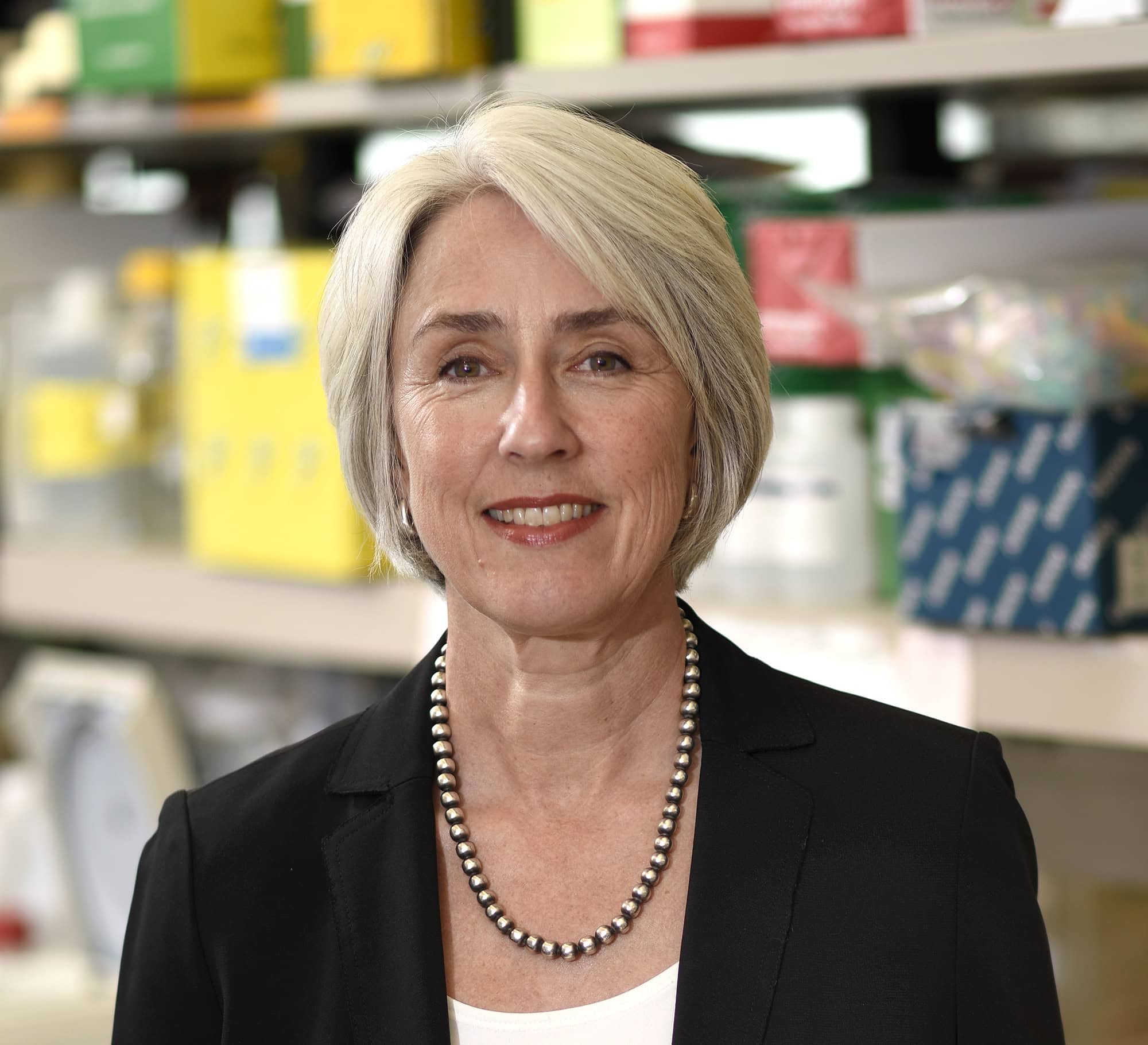Biosketch
Margaret (“Peggy”) Goodell, Ph.D. is Professor and Chair of the Department of Molecular and Cellular Biology, and Director of the Stem Cells and Regenerative Medicine Center, at Baylor College of Medicine, in Houston, Texas. Goodell’s research is focused on the mechanisms that regulate hematopoietic stem cells, and their dysregulation in malignancies, particularly DNA Methyltransferase 3A (DNMT3A). Goodell is a member of the National Academy of Medicine, the National Academy of Sciences, and the American Academy of Arts and Sciences. She is a recipient of the Tobias Award from the International Society for Stem Cell Research, the Dameshek Prize from the American Society of Hematology, the Edith and Peter O’Donnell Award in Medicine from TAMEST. Goodell is Chair of the Scientific Advisory Board of the Keystone Symposia and is a member of their Board of Directors. Goodell is a former president of the International Society for Experimental Hematology. She currently serves on the editorial boards of Cell Stem Cell and Cancer Cell and has served on the editorial board of PLoS Biology, and as an Associated Editor of Blood. Goodell directs a laboratory of about 15 trainees.
Research Interests
Dr. Goodell’s laboratory has been focused on understanding the molecular regulation of blood regeneration and the mechanisms that lead to blood malignancies. Goodell discovered that interferons, a front line of the immune response, also impact stem cells by awakening them from dormancy to replenish blood after chronic infections. This concept has become a cornerstone of hematopoietic stem cell biology and has led to insights about how inflammation affects aging of the blood system more broadly. The Goodell lab is now focused on epigenetic regulation, particularly regarding how DNA methylation impacts normal stem cell differentiation. A key controller of the DNA methylation state is frequently mutated in pre-malignant cells from most aged individuals. Goodell’s lab is interested in how this regulator influences the decision individual stem cells make to differentiate, and how this affects competition among stem cells to replenish the blood and bone marrow. Mutations in this and other genes drive the evolution of stem cell populations within the bone marrow of aging individuals, contributing to dysregulation of normal blood production and to cancer. Understanding competition across tissues is an ongoing broad interest of the lab, and an emerging theme in both development and aging.
Membership Type
Member
Election Year
2025
Primary Section
Section 41: Medical Genetics, Hematology, and Oncology
